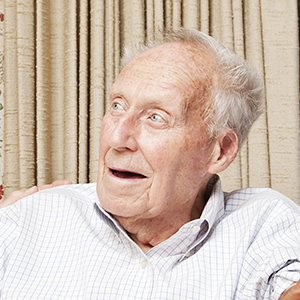
Ben entered residential aged care 5 months ago after being in hospital. Ben was diagnosed with prostate cancer about 18 months before then, and his prognosis is limited. Ben also has Parkinson’s Disease. Nico is Ben’s partner of 10 years. Nico has been providing more care over time for Ben at home since his diagnosis. Before Ben was unwell, Nico and Ben volunteered, went to a local gardening group and enjoyed short driving trips. Ben has a son and daughter from a past relationship, who visit him often. Ben also had a son who died in an accident 15 years ago. Ben shared this with you a few months ago when you asked about a photo of his children in his room.
Ben’s mood seems to have changed in the last month. He seems flat and withdrawn. He has stopped doing the daily crossword, which used to be a usual topic of conversation.
Nico appears to have a good relationship with Ben’s son. However, he and Ben’s daughter have argued several times while visiting Ben. You are aware that Nico is not connected with his own family. Nico also told you last month that a close friend of theirs just died of motor neurone disease (MND). You notice that Nico is often teary when you are working with Ben. Nico seems generally flustered and stressed a lot of the time. He is often checking if what he is doing for Ben is 'right'. He appears to be very anxious about issues that seem minor to other staff and to Ben (e.g. when some items of Ben’s clothing were misplaced). Yesterday, a co-worker told you that Nico said that he feels like he is 'losing everything'. Nico told her that there will be 'nothing to live for' after Ben dies. Nico also mentioned that he is concerned that Bens’ children will contest Ben’s will after his death.